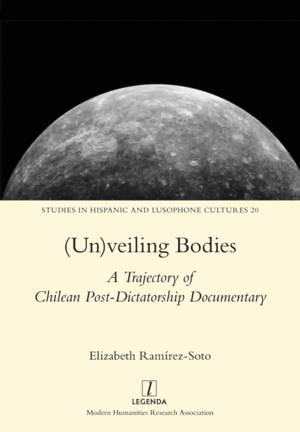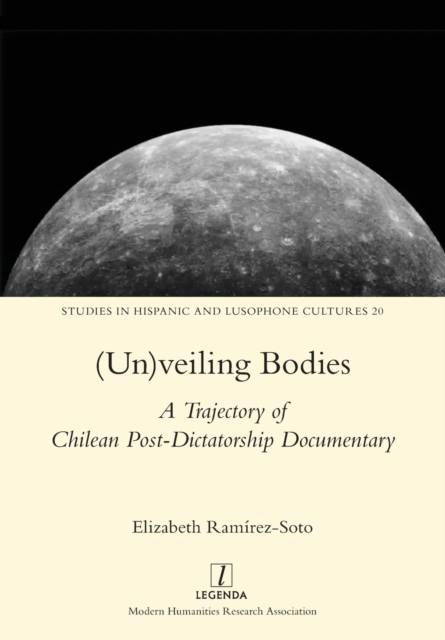
- Retrait gratuit dans votre magasin Club
- 7.000.000 titres dans notre catalogue
- Payer en toute sécurité
- Toujours un magasin près de chez vous
- Retrait gratuit dans votre magasin Club
- 7.000.0000 titres dans notre catalogue
- Payer en toute sécurité
- Toujours un magasin près de chez vous
Description
Documentary plays an essential role in the struggles over memories of Latin America's dictatorial pasts. Ever since Chile's military coup of 11 September 1973, whether inside the country or in exile, filmmakers have passionately and incessantly documented, created, and reenacted memories from this traumatic event and its aftermath.
(Un)veiling Bodies analyses the rich landscape of Chilean documentary during the first two decades after the restoration of civilian rule in 1990. Ramírez-Soto proposes a trajectory that shifts from revealing the bodies of direct victims to unveiling the body of the film itself. This is a journey deeply intertwined with the country's own democratic transition.
Informed by the affective turn in film studies, this book offers a novel approach to this largely unexplored field of Chilean cinema by arguing that these heterogeneous works shift from a 'cinema of the affected' to a 'cinema of affect'. By doing so, these documentaries contribute to Chilean society's own restoration of the senses.
Elizabeth Ramírez-Soto is Assistant Professor in the School of Cinema at San Francisco State University. Her articles have appeared in Quarterly Review of Film and Video, Rethinking History, and Journal of Latin American Cultural Studies. She is also the coeditor of Nomadías: El cine de Marilú Mallet, Valeria Sarmiento y Angelina Vázquez (2016).
Spécifications
Parties prenantes
- Auteur(s) :
- Editeur:
Contenu
- Nombre de pages :
- 234
- Langue:
- Anglais
- Collection :
- Tome:
- n° 20
Caractéristiques
- EAN:
- 9781781884294
- Date de parution :
- 30-08-21
- Format:
- Livre broché
- Format numérique:
- Trade paperback (VS)
- Dimensions :
- 170 mm x 244 mm
- Poids :
- 381 g

Les avis
Nous publions uniquement les avis qui respectent les conditions requises. Consultez nos conditions pour les avis.






